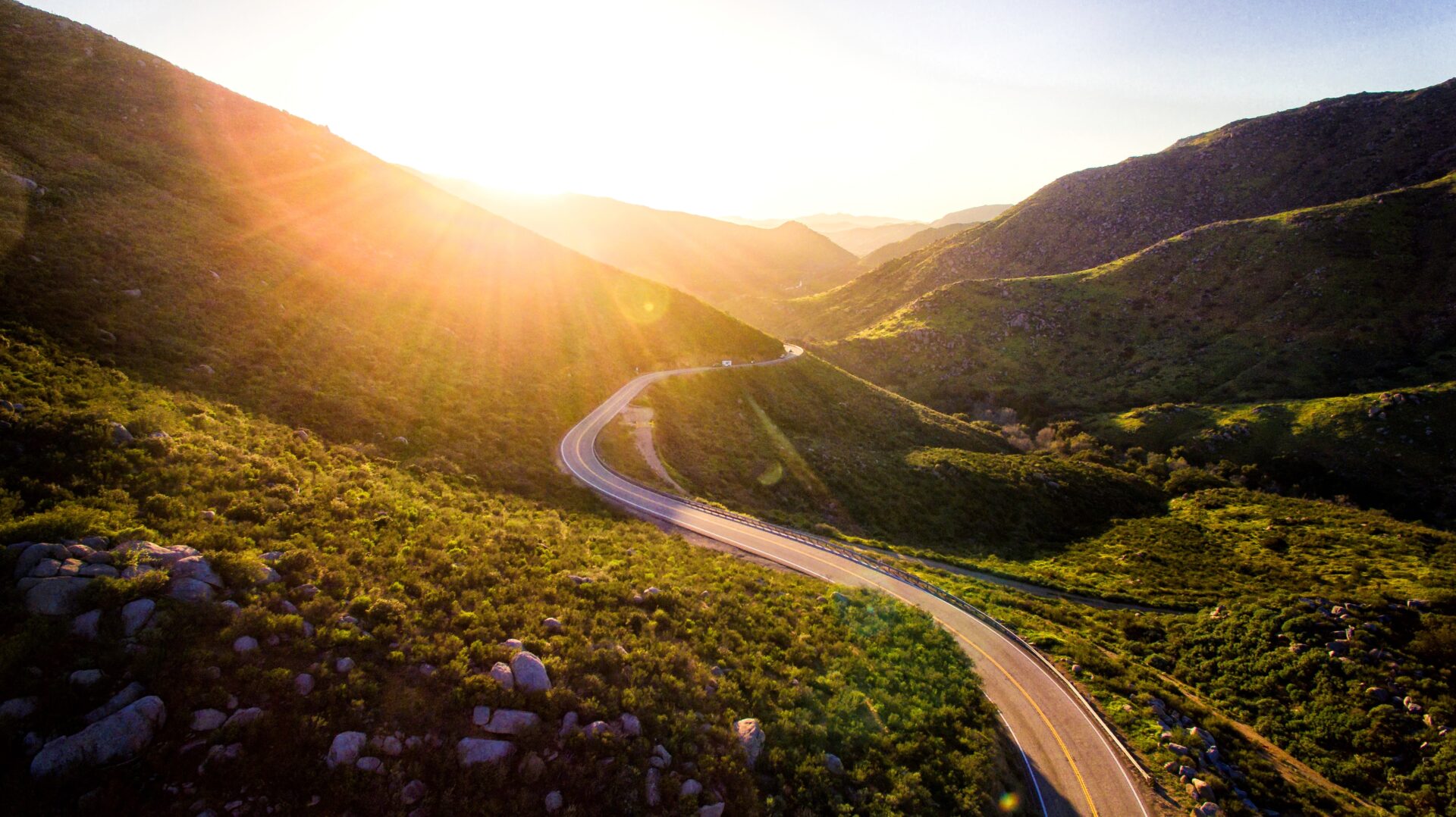
Sunrise over mountain pass in Ramona, California.
Photo by Matt Howard on Unsplash
Settlers and sojourners
June 27, 2023
We always want to arrive someplace. Like the kids in the back of the car saying, “Are we there yet?” or the Israelites wandering in the wilderness complaining to Moses and Aaron, “Where is the Promised Land?” we want to be there.
We remind ourselves that it’s the journey that counts, not the destination, but why is it so often the case that arriving to a place is still so important?
When checking into a hotel room, the first thing some people do is to unpack their suitcase and put all their clothes in the dresser drawers and closet. They take their toiletry bag and lay out their many bottles and tubes near the sink. Others simply find a table top for their suitcase and peer out the window, ready to explore the new place outside. The former are more like settlers and the latter more like sojourners.
Settlers like to stay for a while, claim a space, and perhaps send down some roots. Sojourners, on the other hand, consider the hotel room merely a clean space to rest and sleep to launch them to continue to move about.
Our world needs all types of people, including both settlers and sojourners, to function. Settlers are important to establish a viable and sustainable world in which people can thrive. Sojourners reflect the adventurous spirit to explore and turn over every rock they might encounter. But both also have their downsides.
Wherever we find ourselves to be, together as settlers, refugees, and sojourners, we can become contributing members and citizens of our new home.
When settlers start to forget that they once were sojourners who came upon this place once upon a time, they claim ownership and become protective of legacy and tradition. They put up fences and draw up boundaries of what’s inside and outside. Settlers often speak about inalienable rights. When sojourners willingly or unwillingly won’t allow any grass to grow under their feet, they forfeit any responsibilities for what may be happening all around them. They become more like the thief in the night or just some stranger passing through.
My grandfather was a Chinese sojourner in America because he worked in San Francisco to send much-needed money back to his family in China. When he finished his years of work, he returned to China to live out the rest of his life. He wasn’t allowed to own a house even if he wanted to purchase one. All his descendants have are stories told and national archives documents about his immigration. My father began as a sojourner like his father, but as the result of world events such as WWII, he became a settler. He became a US citizen after serving in the US Army and eventually brought my mother and brother from China to reside in Boston. He bought a house in Roxbury.
One of the hot spots in the world is the ongoing conflict between the Israelis and the Palestinians. The Promised Land is biblically rooted in Israel’s lore, but equally important is how over thousands of years, the Middle East has been, and still is, a home for many people. In this example, both groups want to be settlers in the same place, and the conflict continues.
On our southern border, people become immigrants because of the awful and unsafe conditions found in their native countries. Some are refugees literally fleeing for their lives because of political persecution. So many people decide to become sojourners with the dream of becoming settlers in the US as their promised land. If not for immigrants like my father and grandfather who worked in jobs that nobody really wanted, our country would not be as strong and viable as it is today. If it were not for the many newly arrived immigrants and refugees coming to the US, there would not be enough workers for unfilled jobs that we all rely on.
The point is that we must always think of ourselves as both settlers and sojourners. When only the “settlers” mentality obsesses us, we become insulated and eventually isolated and myopic. We’ll close our borders and exit the world stage. When we only see our time on this earth as “sojourners,” we become indifferent to the suffering of others and simply move on to the next place. Wherever we find ourselves to be, together as settlers, refugees, and sojourners, we can become contributing members and citizens of our new home. In God’s sight, we could also become citizens of God’s household, “living stones,” God’s people with a “marvelous light” to shine in this troubled world. (1 Peter 2:5, 9)
In the end, if we are brutally honest with ourselves, we are merely a small blip of people on the move in the course of human history. We settled for a time to feel that we have arrived always knowing that our time here is simply temporary. We flee to find refuge solely to survive the day. We sojourn on with the faith that the final place is glorious.
Rev. Donald Ng was president, American Baptist Churches, USA, 2014-15, the first Asian American to serve in this elected position. For 17 years, he was senior pastor of the historic First Chinese Baptist Church in San Francisco. He retired from full-time ministry in 2015.
The views expressed are those of the author and not necessarily those of American Baptist Home Mission Societies.


